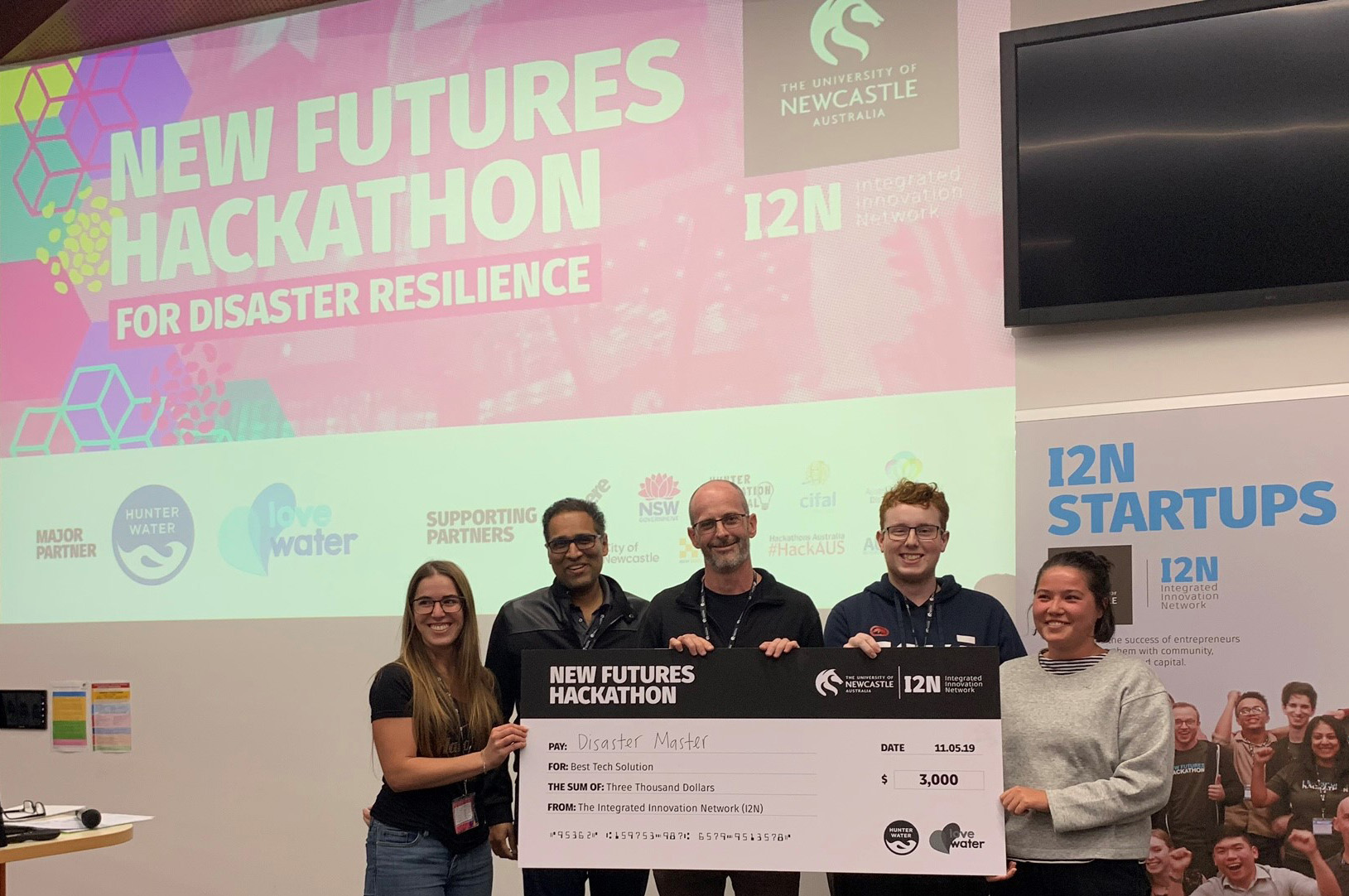Disaster Master, a mobile-based application that gamifies challenges based on real disaster situations to educate people on how to prevent, prepare, respond and recover from natural and man-made disasters, has won the New Futures Hackathon.

Hunter Water Chief Investment Officer Darren Cleary (centre) presents the NeW Futures Hackathon winner's cheque to members of Disaster Master Julia Sa, Jackson Chackungal, Ethan Moriarty and Janai Lemar.
Organised by the University of Newcastle's Integrated Innovation Network (I2N), the Hackathon is an annual problem-solving challenge. This year's event focused on disaster resilience, asking participants to find solutions that leave communities less vulnerable when disaster strikes.
During the two-day event at the University's NeW Space city campus, 40 participants, with 50 per cent female representation, formed eight teams and had the opportunity to learn from disaster resilience experts and technical mentors before embarking on a 10-hour 'hack' to evolve their ideas into a viable, technological solution.
Awarded the Best Tech Solution for Disaster Resilience, Disaster Master is an app that encompasses mini games based on real disaster situations. It also includes opportunities to progress, join local teams and compete with others. During a real-life disaster, the app allows users to send out an SOS notification to the relevant emergency services, informing where they are and the type of assistance they need.
The winning team, including Jackson Chackungal, Julia Sa, Ethan Moriarty and Janai Lemar, comprised multi-disciplinary professionals in civil and software engineering, a University of Newcastle IT student and a University alumnus who had never met before the event. The team received $3,000 and will each receive a three-month residency at the University's I2N Hub Hunter Street, including specialist mentorship.
A team of students from University of New South Wales, Eliza Han, Joanna Chan Junkuan Wang and Samuel Zhan was awarded Best Runner-Up Tech Solution, receiving $2,000 for their project U-Help, which uses blockchain to track donations made to charities, providing transparency to users about how and when money donated is spent.
Awarded the Rising Star Award, and receiving $500, was a team of Hackathon first-timers from Sydney and Newcastle who had also not met before the Hackathon, for their microgrid solution – Community Power.
The event aims to build enterprise skills among the community and was supported by Hunter Water, CIFAL Newcastle and the NSW Government's Boosting Business Innovation Program.
An overview of the seven New Futures Hackathon projects is available at: https://new-futures-hackathon-dr.devpost.com/submissions.






